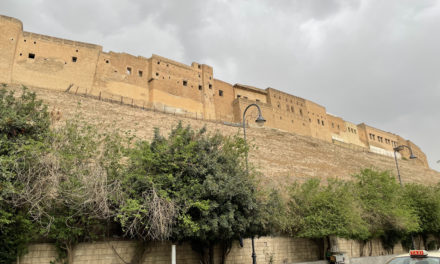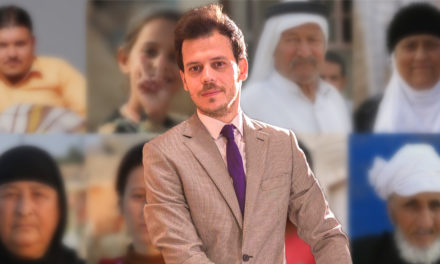The Patriotic Union of Kurdistan (PUK) is a divided party. There are two spheres of influence within the PUK, each pursuing a contradicting policy to the other. On one hand, there is the wing led by Hero Ahmed, Jalal Talabani’s wife. This wing has taken to building an alliance with parties in Baghdad, thus strengthening ties with the federal government. On the other hand, there is the wing led by Kurdistan Region’s Vice President, Kosrat Rasul Ali, and former KRG Prime Minister, Barham Salih. This side wants to maintain the current alliance with the region’s incumbent President Masoud Barzani and his party, the Kurdistan Democratic Party (KDP).
The PUK and the KDP are old rivals who fought a bloody civil war in the 1990s. But after the overthrow of the Saddam regime in 2003, former foes put their differences aside and created a united Kurdish alliance in Baghdad and a united lobby in Washington. This collaboration gave the Kurds substantial influence in the new Iraq and created a unique relationship with the United States. But in 2014, and after slow deterioration in PUK-KDP relations, major cracks started to appear in the two’s alliance in the Iraqi parliament. It became apparent that the PUK and the KDP are pursuing different policies, particularly in regards to relations with Baghdad.
However, despite intra-Kurdish differences and a warming PUK relationship with Baghdad, the PUK continued to lobby with the KDP against Baghdad in Washington. This can largely be attributed to the efforts of PUK member and Kirkuk Governor, Najmaldin Karim. Karim’s behaviour creates an odd contradiction between the PUK’s stance in Baghdad and their public messaging and lobbying efforts abroad. This contradiction cannot be sustained for long as it will negatively affect the PUK’s stance in Baghdad.
Besides jeopardizing relations with Baghdad, there is legal misconduct in Karim’s lobbying efforts. His frequent visits to Washington as an Iraqi governor are nonstandard, if not outright illegal. The Iraqi constitution is clear in defining the powers of provincial governors, and handling foreign policy is not one of those powers. The irony about Karim’s misconduct is that he lobbies against the federal government of Iraq, whom his province administratively answers to. Karim presents himself as an Iraqi governor, and not a Kurdish official when speaking to foreign actors to gain legitimacy and cause further damage to Iraq’s image abroad.
Karim utilizes multiple institutions to project his message in Washington. He appeared in two recent events held by the Washington Institute for Near East Policy and the Middle East Institute. In addition, Karim is the founder and president of the Washington Kurdish Institute. Despite holding the governorship of Kirkuk since 2011, Karim continues to be the Washington Kurdish Institute’s president. Because it is illegal for an Iraqi civil servant to hold multiple jobs at once, his role is a cause for concern as it presents a conflict of interest. At times, it becomes difficult to distinguish whether Karim is a federal government official or a KRG official because of the number of times he is hosted by the KRG representative office and not the Iraqi Embassy.
Iraqis are largely unaware of how much the PUK statements in Baghdad differ from their statements in the United States. While leader of the PUK-Gorran block in Baghdad, Ala Talabani praises the Popular Mobilization Forces for defending Iraq; Karim consistently refers to them as Shia militias. While Talabani’s block calls for greater relations between Kurdish provinces and Baghdad; Karim preaches that Kurds in provinces under the KRG should not answer to Baghdad.
It would be in the best interest of Karim, his party and Kirkuk if he aligns himself with the pro-Baghdad wing. Of all PUK leaders, he has the most to gain from closer ties with Baghdad. Karim is the only Kurdish governor under federal Iraqi administration, which would make him an effective intermediary between the federal government and the KRG. This would solve most of Karim’s complaints about Baghdad, but whether he wants this to happen depends on if his interests are about improving his province or which administrative lines Kirkuk falls under.
It is unclear whether the Kurdish lobby in Washington can survive turbulent PUK-KDP relations, and it is unclear whether the PUK will unite under a single vision again, but one thing is for sure: for the PUK to maintain its alliance with parties in Baghdad, it must put an end to anti-Baghdad messaging in Washington. Letting its partisans lobby against Baghdad will make the PUK too unpopular in Iraq for Arab parties. The PUK should learn from the fate of the KDP, which has become too politically toxic for Shia parties, and major Sunni factions to ally with.

Hamzeh Hadad
Hamzeh Hadad is an Iraqi writer and commentator. He holds a Bachelor of Arts with honours from the University of King’s College.










